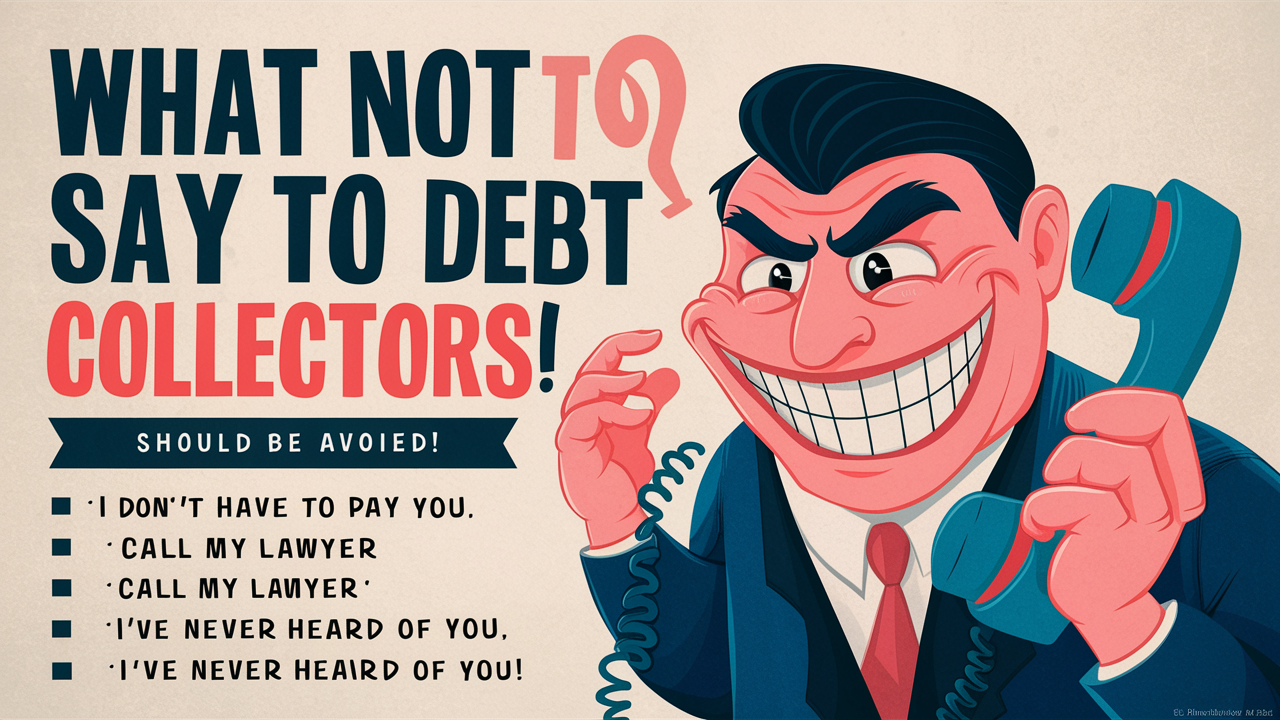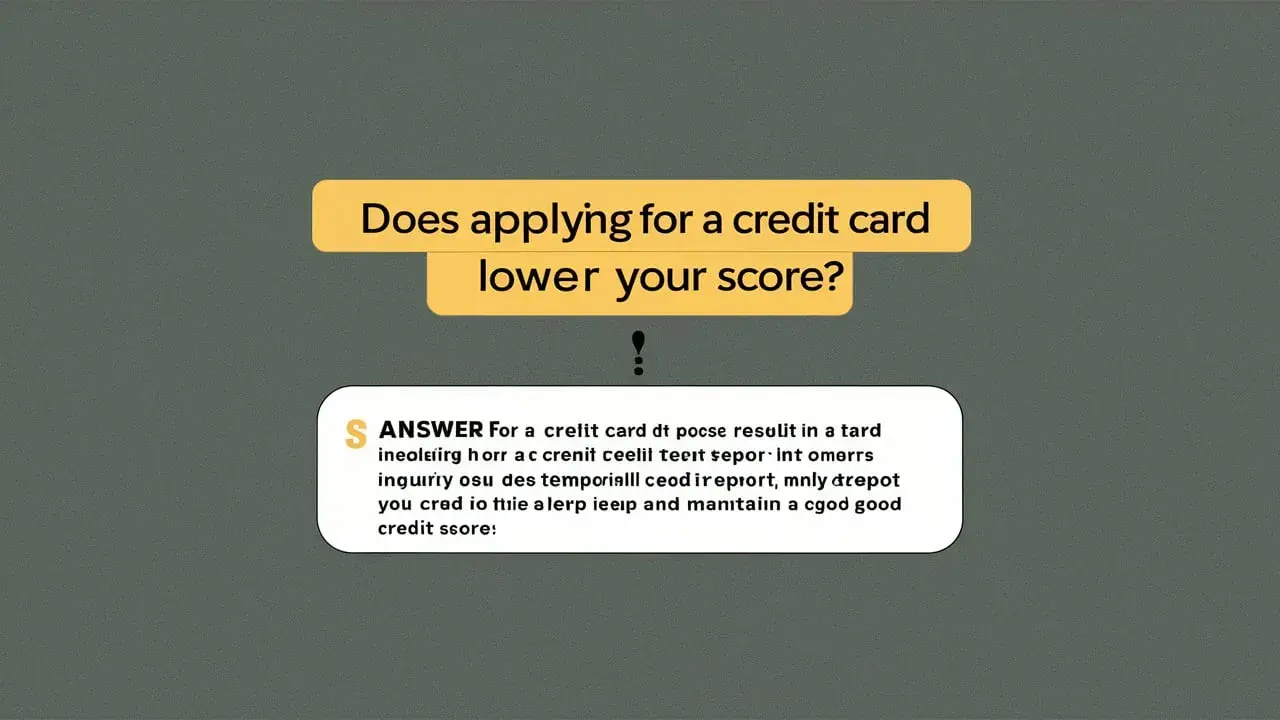Dealing with debt collectors can be a stressful and overwhelming experience. It's crucial to understand your rights and know what to say (and, more importantly, what *not* to say) to avoid potential legal or financial repercussions. This comprehensive guide will walk you through the common pitfalls to avoid when interacting with debt collectors, ensuring you protect your interests and navigate the debt collection process effectively.
Understanding Your Rights Under the Fair Debt Collection Practices Act (FDCPA)
Before diving into what not to say, it's essential to understand your rights under the Fair Debt Collection Practices Act (FDCPA). This federal law protects consumers from abusive, deceptive, and unfair debt collection practices. Key provisions of the FDCPA include:
- Right to Validation: You have the right to request validation of the debt. This means the debt collector must provide you with proof that you owe the debt, including the original creditor's name, the amount owed, and other relevant information.
- Limitations on Communication: Debt collectors are limited in when and how they can contact you. They generally cannot contact you at inconvenient times (e.g., before 8 a.m. or after 9 p.m.) or places (e.g., at work if you've told them not to).
- Prohibition of Harassment: Debt collectors cannot harass, oppress, or abuse you. This includes using abusive language, threatening legal action they can't or won't take, or repeatedly calling you.
- Right to Cease Communication: You have the right to send a "cease and desist" letter to the debt collector, instructing them to stop contacting you. They are then limited to notifying you about any legal action they might take.
Knowing these rights is the first step in protecting yourself from aggressive or unscrupulous debt collection practices.
Top Things NOT to Say to Debt Collectors
Your words can have significant consequences when interacting with debt collectors. Here's a detailed breakdown of what to avoid saying and why:
1. "Yes, I Owe the Debt" Without Verification
Avoid immediately admitting you owe the debt without first requesting validation. While honesty is generally a good policy, confirming the debt without proof puts you at a disadvantage. The debt might be inaccurate, already paid, or beyond the statute of limitations. By admitting the debt without validation, you could unintentionally revive a time-barred debt or agree to pay an amount you don't actually owe.
Instead Say: "I need you to provide me with written documentation verifying this debt. Please include the original creditor's name, the account number, the amount owed, and any supporting documentation."
2. Providing Personal Information Unnecessarily
Debt collectors might try to trick you into revealing sensitive information like your Social Security number, bank account details, or date of birth. Only provide this information if you are absolutely certain the debt collector is legitimate and you are in a secure and controlled environment.
Why it's risky: Identity theft and scams are rampant. Unscrupulous individuals might use your personal information to open fraudulent accounts or steal your identity. Legitimate debt collectors should already have some of your information.
Instead Say: "I'm not comfortable providing that information at this time. Please send me the debt validation documents first. Once I've verified the debt, we can discuss further steps."
3. Promising to Pay Without a Written Agreement
Never verbally promise to pay a debt without getting a written agreement outlining the terms of repayment. Debt collectors might pressure you to make a payment, even a small one, to acknowledge the debt. However, a verbal agreement is difficult to prove and might not be honored.
Why it's risky: The debt collector could change the terms of the agreement later, leaving you in a vulnerable position. A partial payment can also restart the statute of limitations in some states.
Instead Say: "I'm willing to consider a payment plan, but only if we have a written agreement outlining the terms, including the total amount owed, the payment schedule, and any interest or fees."
4. Offering More Information Than Necessary
Avoid volunteering information about your financial situation, assets, or employment status. Debt collectors might use this information to pressure you into making payments or to pursue legal action.
Why it's risky: They might learn about assets they could potentially garnish, or your employment status could influence their negotiation tactics.
Instead Say: "I'm only willing to discuss the debt itself. My personal financial information is not relevant at this time."
5. Admitting Knowledge of a Debt Beyond the Statute of Limitations
The statute of limitations is the time period within which a creditor can sue you to collect a debt. Once the statute of limitations has expired, the debt is considered "time-barred," and the creditor can no longer sue you. Even acknowledging awareness of a debt that is past the statute of limitations in some states can re-activate the debt.
Why it's risky: Acknowledging the debt, even unintentionally, can restart the statute of limitations in some states. This means the debt collector could potentially sue you to collect the debt, even if it was previously time-barred.
Instead Say: "I am not acknowledging or denying this debt. I am requesting validation of the debt, including the date of last activity." (This avoids admitting prior knowledge while still requesting information.)
6. Engaging in Emotional Arguments
It's easy to become emotional when dealing with debt collectors, especially if they are being aggressive or unfair. However, engaging in emotional arguments can cloud your judgment and lead you to say things you later regret.
Why it's risky: Debt collectors might try to exploit your emotions to get you to make a payment or admit to owing the debt. Remaining calm and objective will help you make rational decisions.
Instead Say: Remain polite and professional. If you feel yourself becoming overwhelmed, politely end the conversation and resume it later when you are calmer.
7. Giving Them Permission to Call You Repeatedly
The FDCPA limits when and how debt collectors can contact you. Giving them explicit permission to call you repeatedly waives those protections.
Why it's risky: Unscrupulous collectors might harass you with calls at all hours, significantly impacting your life.
Instead Say: "I prefer to communicate in writing. Please send all correspondence by mail to [your address]." You can also state: "I am requesting that you only contact me between the hours of [specific hours], and only on [specific days of the week]."
8. Threatening a Debt Collector (Even in Frustration)
While it's understandable to feel frustrated and angry when dealing with debt collectors, avoid making any threats, even in jest. Threatening a debt collector can have legal consequences.
Why it's risky: You could face criminal charges for making threats, even if you didn't intend to carry them out. It also undermines your credibility in any future complaints you may have.
Instead Say: If you feel threatened or harassed, document the interaction and file a complaint with the Consumer Financial Protection Bureau (CFPB) and your state's Attorney General.
9. Agreeing to a Payment Plan You Can't Afford
Debt collectors might pressure you into agreeing to a payment plan, even if you know you can't afford it. Agreeing to a payment plan you can't sustain will only lead to more stress and financial difficulties.
Why it's risky: You'll fall behind on payments, incur additional fees and interest, and potentially damage your credit score further.
Instead Say: "I need to review my budget and financial situation before committing to any payment plan. Please send me a written proposal outlining the terms of the payment plan, and I will let you know my decision after careful consideration."
10. Ignoring the Debt Collector Altogether
While it might be tempting to ignore debt collectors and hope they go away, this is generally not a wise strategy. Ignoring the problem will not make it disappear, and it could actually make things worse.
Why it's risky: The debt collector could eventually file a lawsuit against you, and if you don't respond, they could obtain a default judgment. This could lead to wage garnishment, bank levies, or other collection actions.
Instead Do: Acknowledge the communication (preferably in writing, requesting validation). Even if you believe you don't owe the debt, it's important to address the issue proactively to protect your rights and avoid legal repercussions.
Best Practices for Communicating with Debt Collectors
Here are some general tips for communicating with debt collectors effectively:
- Communicate in Writing: This creates a record of your interactions and helps avoid misunderstandings.
- Keep Detailed Records: Document all calls, letters, and emails. Include the date, time, name of the collector, and a summary of the conversation.
- Be Polite and Professional: Even if you're feeling frustrated, remain calm and respectful.
- Know Your Rights: Familiarize yourself with the FDCPA and your state's debt collection laws.
- Seek Legal Advice: If you're feeling overwhelmed or unsure of your rights, consult with an attorney specializing in debt collection defense.












